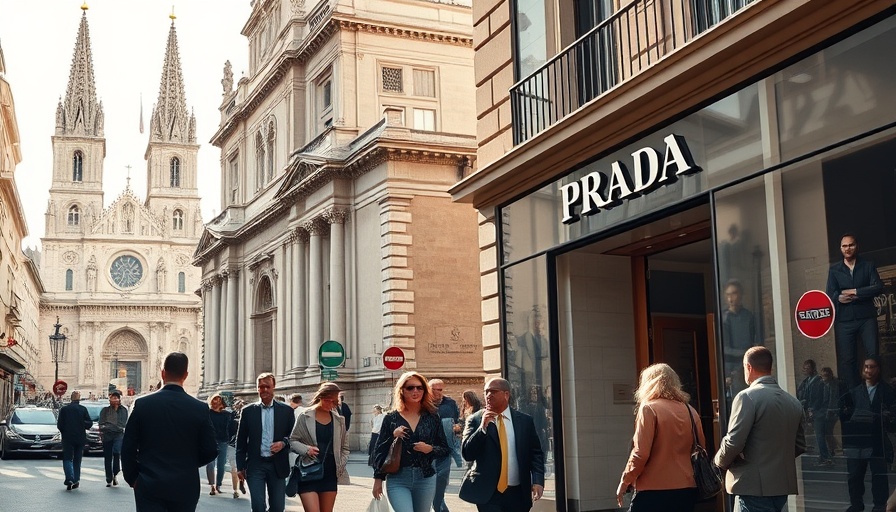
Prada's Acquisition of Versace: A Game-Changer in Luxury Fashion
The luxury fashion landscape is shifting as Prada Group announces its ambitious acquisition of Versace for a staggering $1.38 billion. This deal, which highlights the resilience of luxury brands amidst geopolitical challenges, comes after a tumultuous period influenced by President Trump's tariffs that could have derailed the transaction altogether.
Understanding the Economic Implications
The acquisition is particularly relevant for importers and exporters engaged in the luxury goods market. Economic indicators show that Trump's tariffs significantly impacted not only U.S. companies but also global supply chains. For instance, the costs to source raw materials increased, prompting a downturn in Capri Holdings' market value and pressuring Prada to negotiate the purchase price down from $1.6 billion. This situation underscores the intricate dynamics of trade policy, making it crucial for businesses to adapt to the evolving economic landscape.
Versace's Journey Through Ownership
Founded in 1978 by the iconic Gianni Versace, the brand's history intertwined with that of its owners. In 2018, Capri Holdings acquired Versace for $2.1 billion, a deal significant at the time yet faced challenges. Now, amid expectations of strong future performance, the spotlight is back on Versace, with Donatella Versace stepping down as head. This transition may reshape brand identity, a factor essential for exporters who depend on brand strength in e-commerce environments.
The Broader Impact on the Luxury Market
The implications of this acquisition extend beyond just Prada and Versace. For e-commerce businesses operating within the AfCFTA (African Continental Free Trade Area), the changing nature of luxury retail signals potential opportunities for growth in cross-border trade. As regions adapt to shifting consumer behaviors and digital economies, the future of commerce in luxury goods may see increased competition as brands seek to expand their international presence.
Why This Matters for Businesses Today
Understanding this acquisition offers invaluable insights for businesses engaged in global luxury markets. It exemplifies how adaptable strategies in trade and commerce are critical for survival, especially in an era impacted by tariffs and fluctuating consumer demands. Companies interested in breaking into or scaling in the luxury sector must consider strategic partnerships and adhere to evolving trade regulations to thrive.
This pivotal moment in luxury fashion prompts everyone from entrepreneurs to established brands to rethink their market strategies. Keeping abreast of such changes is essential for those looking to navigate the complexities of today’s global economy.
To better adapt and prepare your business for the shifting terrain of trade, stay informed and engaged with the latest industry news. Connecting with trade organizations can also help keep a pulse on market fluctuations and help you leverage opportunities presented by such major acquisitions.
 Add Row
Add Row  Add
Add 




Write A Comment